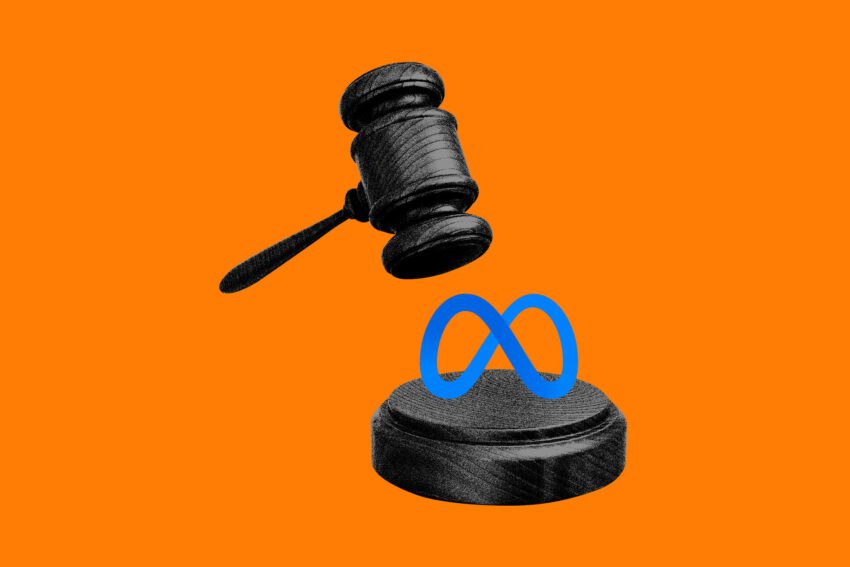
meta is not a monopolist judge rules Meta has secured a significant legal victory against the Federal Trade Commission (FTC) in a landmark antitrust case, with a federal judge ruling that the company has not monopolized the social media market.
meta is not a monopolist judge rules
Background of the Case
The antitrust case against Meta, which encompasses its popular platforms Facebook, Instagram, and WhatsApp, has been a focal point of regulatory scrutiny for several years. The FTC initially filed the lawsuit during the Trump administration, alleging that Meta had engaged in anti-competitive practices by acquiring potential rivals like Instagram and WhatsApp. The agency argued that these acquisitions were intended to stifle competition and maintain Meta’s dominance in the social media landscape.
As the case progressed, the landscape of social media evolved dramatically. The rise of platforms like TikTok has shifted user behavior and preferences, complicating the FTC’s argument that Meta holds an illegal monopoly. This evolution played a crucial role in the court’s decision, as Judge James Boasberg emphasized the importance of current market dynamics over past dominance.
The Court’s Ruling
On Tuesday, U.S. District Court Judge James Boasberg ruled in favor of Meta, stating that the FTC had failed to prove that the company holds an illegal monopoly in the “personal social networking” market. In his decision, Boasberg pointed out that the FTC faced an “uphill battle” in defining the relevant market and demonstrating that Meta did not face substantial competition.
Market Definition Challenges
One of the key challenges for the FTC was defining the market in which Meta operates. The agency argued that personal social networking is a distinct category that includes only a narrow subset of social media apps. However, Boasberg noted that the boundaries of this market have become increasingly blurred, particularly with the rise of TikTok and other platforms that offer similar functionalities.
“The landscape that existed only five years ago when the Federal Trade Commission brought this antitrust suit has changed markedly,” Boasberg wrote. He highlighted that the traditional separation of social networking and social media has diminished, making it difficult for the FTC to assert that Meta operates in a monopolistic environment.
Competition from Emerging Platforms
The court’s ruling emphasized the importance of competition in the current market. Boasberg pointed out that the FTC needed to demonstrate that Meta still held a monopoly in light of the competition presented by platforms like TikTok and YouTube. He stated, “The Court’s verdict today determines that the FTC has not done so.” This assertion reflects a broader understanding that user preferences are fluid and can shift rapidly based on emerging trends.
Throughout the trial, the FTC attempted to argue that users engage with Meta’s apps for different purposes than they do with video-focused platforms like YouTube or TikTok. However, Boasberg appeared unconvinced by this argument, stating, “Meta’s apps are reasonably interchangeable with TikTok and YouTube.” He cited evidence that users flocked to Meta’s platforms during TikTok’s temporary blackout in the U.S., suggesting that user behavior does not conform to the rigid categories proposed by the FTC.
Implications of the Ruling
The ruling has significant implications for Meta and the broader tech industry. By affirming that Meta does not hold a monopoly, the court has set a precedent that could influence future antitrust cases against tech giants. The decision may embolden other companies to pursue acquisitions without the fear of regulatory backlash, provided they can demonstrate that they face substantial competition.
Moreover, the ruling could impact the FTC’s approach to antitrust enforcement moving forward. The agency has faced criticism for its handling of monopolization cases, and this defeat may prompt a reassessment of its strategies and priorities. The FTC’s mixed record in recent antitrust cases, including its unsuccessful attempts to challenge Meta’s acquisitions, raises questions about the agency’s ability to effectively regulate the tech industry.
Reactions from Stakeholders
The reactions to the ruling were swift and varied. Meta spokesperson Chris Sgro expressed satisfaction with the decision, stating, “The Court’s decision today recognizes that Meta faces fierce competition. Our products are beneficial for people and businesses and exemplify American innovation and economic growth.” This statement underscores Meta’s position as a key player in the tech industry and its commitment to innovation.
Conversely, the FTC expressed disappointment in the ruling. FTC spokesperson Joe Simonson stated, “The deck was always stacked against us with Judge Boasberg, who is currently facing articles of impeachment. We are reviewing all our options.” This comment highlights the contentious nature of the case and the challenges the FTC faces in pursuing antitrust actions against powerful tech companies.
Historical Context of Antitrust Actions Against Meta
This ruling marks the second significant antitrust loss for the FTC against Meta. Earlier in the Biden administration, a court allowed Meta to complete its acquisition of the virtual reality fitness startup Within, despite the FTC’s challenge. The agency ultimately decided not to appeal that decision, further illustrating the difficulties it has encountered in its attempts to regulate Meta.
The FTC’s monopolization case against Meta has a complex history, having been filed during the Trump administration and amended during the Biden administration. The case’s trajectory reflects the evolving regulatory landscape and the challenges of addressing monopolistic practices in a rapidly changing tech environment.
Broader Implications for Antitrust Enforcement
The ruling also highlights the mixed record of the government in modern tech monopoly cases. While the Justice Department has successfully pursued monopolization cases against Google’s search and ad tech businesses, the outcomes have been inconsistent. A judge failed to deliver most of the remedies sought in the search case, and closing arguments in the remedies phase of the ad tech case are scheduled for later this week.
This inconsistency raises questions about the effectiveness of current antitrust laws and the ability of regulatory agencies to adapt to the unique challenges posed by the tech industry. As technology continues to evolve, regulators will need to develop new frameworks and strategies to address potential monopolistic practices while fostering innovation and competition.
Looking Ahead
As the FTC considers its next steps in light of this ruling, the future of antitrust enforcement in the tech sector remains uncertain. The agency may need to reevaluate its approach to defining markets and assessing competition in an era where user preferences and platforms are constantly shifting. This ruling serves as a reminder of the complexities involved in regulating powerful tech companies and the need for a nuanced understanding of the market dynamics at play.
In conclusion, Meta’s victory in this landmark antitrust case represents a significant moment in the ongoing debate over competition in the tech industry. The ruling not only affirms Meta’s position in the market but also raises important questions about the effectiveness of current regulatory frameworks. As the landscape continues to evolve, stakeholders will be closely watching how both Meta and the FTC respond to this pivotal decision.
Source: Original report
Was this helpful?
Last Modified: November 19, 2025 at 1:38 am
2 views















